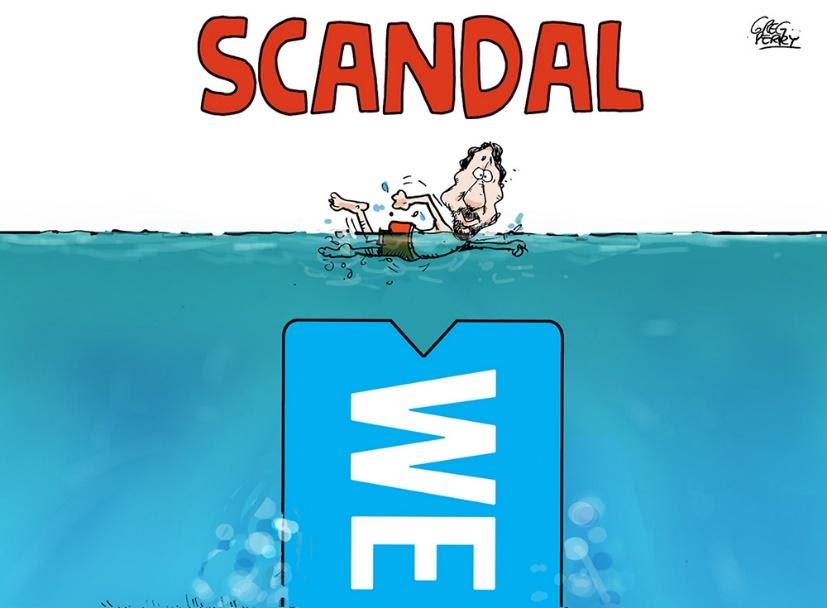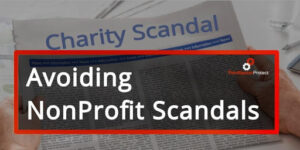
Nonprofits and those who lead them are often held in high regard by the public, partly because they have chosen to dedicate themselves to working for the public good rather than profit-making. Due to the nature of nonprofit work, being part of a nonprofit’s Executive leadership team evokes a lot of trust from the internal and external community; but with great trust comes great responsibility.
It is the duty of all Executives to act with care, diligence, skill, honesty, and loyalty; to not use, for their own benefit, any information or property they receive or are responsible for as part of their duties (unless authorized by the Board of Directors); and to avoid conflicts of interest. But what happens when public trust gets broken due to nonprofit leaders engaging in questionable business dealings that go against those duties, such as the case with the current WE Charity scandal? For those unfamiliar with the scandal and the ongoing public inquiry:

The WE Charity scandal is an ongoing Canadian political scandal regarding the awarding of a federal contract to WE Charity to administer the $912 million Canada Student Summer Grant program (CSSG).
This was controversial, as the charity had previously paid close family of Prime Minister Justin Trudeau to appear at its events, despite making claims to the contrary. WE Charity also used pictures of Trudeau’s family members as celebrity endorsements in their application. Trudeau asserted that WE Charity had been uniquely capable of administering the program as “the only possible option”, and that it was the civil service, not him, who decided that WE Charity was the best option.
WE Charity was allowed, as is the case in sole-source contracts, to revise its submissions for the program. Other organizations however, such as the Public Service Alliance of Canada and YMCA Canada, expressed skepticism at the claim that WE Charity was the only organization in Canada capable of administering the contract. Evidence discovered by parliamentary committees investigating the scandal appeared to suggest a significant degree of preferential treatment given to WE Charity by the civil service, as, while WE Charity was allowed to repeatedly revise its proposals for the program, no call for proposals was ever issued, nor were any received from any other organization. Reports also indicated that this was further amplified by pressure from members of Trudeau’s cabinet to make the selection.
The structure of the program, and the selection of WE Charity as its administrator, immediately triggered condemnation amongst the Official Opposition, as well as numerous other groups, such as the Public Service Alliance of Canada,[7] Democracy Watch, and Volunteer Canada who argued that WE Charity:
- Was not the only possible administrator as had been claimed.
- Had been the beneficiary of cronyism.
- Had experienced significant disruption due to the COVID-19 pandemic and required a bailout.
- Had illegally lobbied the government.
- Was unable to operate in French-speaking regions of Canada.
- Was potentially in violation of labour laws.
- Had created hundreds of volunteer positions with WE Charity itself as part of the program, doing work generally conducted by paid employees, representing a conflict of interests.
Source: Wikipedia
A recent public opinion survey showed that the public’s trust in the nonprofit and charity sector has fallen by 6% as a result of the WE Charity scandal and that public trust of charities and nonprofits is now hovering at around 50% overall. This figure is unsurprising when you consider how common it is for those in the nonprofit industry to turn a blind eye to disreputable behavior that goes against the wholesome missions and virtuous images that these organizations often boast. For instance, did you know that 1 in 4 women in the fundraising profession report having been sexually harassed on the job?

Nonprofit work tends to appeal particularly to young and idealistic individuals eager to make a difference in the world, and roughly 70% of those working in the fundraising profession in Canada identify as female. When the vast majority of high net-worth donors are older, influential men, it creates an alarming power dynamic that is highly susceptible to exploitation and abuse. Time and time again we have seen, and continue to see, those who are in positions of power capitalize on this power imbalance by taking advantage of others, be it an employee, colleague, sponsor, or the community at large; all for their own personal gain or self-advancing ‘career’ agendas. This raises the question, should leaders of nonprofit organizations be held to a higher standard due to the issue of public trust?
 When wrongdoing persists within a nonprofit organization, it often points to the Board and to the executive leadership’s unwillingness and failure to listen to advice and act. It must be understood that failing to lead with integrity as part of a nonprofit’s leadership team can lead to severe legal consequences and potentially destroy the organization. If you are part of a nonprofit organization and believe that something illegal, unethical, or policy-related may be taking place, follow your organization’s process for filing a formal inquiry or complaint. It is time for nonprofit organizations to start protecting their people with the same passion and vigor that they dedicate to their causes.
When wrongdoing persists within a nonprofit organization, it often points to the Board and to the executive leadership’s unwillingness and failure to listen to advice and act. It must be understood that failing to lead with integrity as part of a nonprofit’s leadership team can lead to severe legal consequences and potentially destroy the organization. If you are part of a nonprofit organization and believe that something illegal, unethical, or policy-related may be taking place, follow your organization’s process for filing a formal inquiry or complaint. It is time for nonprofit organizations to start protecting their people with the same passion and vigor that they dedicate to their causes.
TSERGAS Human Capital – All Things People™ – www.tsergas.ca
“Ethics is knowing the difference between what you have a right to do and what is right to do.” — Potter Stewart

Cierra James-Hahn
Senior HR Management Consultant
Cierra is an experienced human resources professional with a comprehensive background in recruitment and onboarding, contract writing, compensation and benefits, health and safety, and policy development.